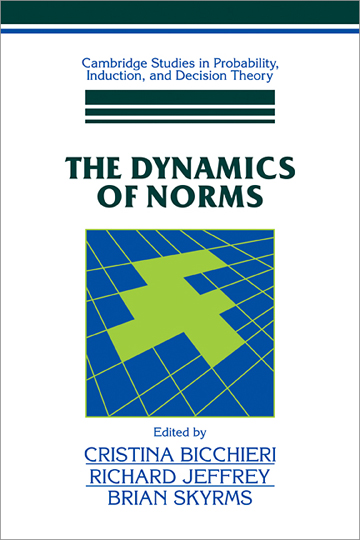 Cambridge University Press, 2009.
Cambridge University Press, 2009.
In the social sciences norms are sometimes taken to play a key explanatory role. Yet norms differ from group to group, from society to society, and from species to species. How are norms formed and how do they change? This 'state-of-the-art' collection of essays presents some of the best contemporary research into the dynamic processes underlying the formation, maintenance, metamorphosis and dissolution of norms. The volume combines formal modelling with more traditional analysis, and considers biological and cultural evolution, individual learning, and rational deliberation. In filling a significant gap in the current literature this volume will be of particular interest to economists, political scientists and sociologists, in addition to philosophers of the social sciences.
Cristina Bicchieri’s essay, ‘‘Learning to Cooperate’’ (originally published in this journal in 1990), gives the broadest and most philosophically interesting account of norms in the book. She argues that norms of cooperation ‘‘emerge as equilibria of learning dynamics in small-group interactions’’ (p. 17). Given the many equilibria possible in repeated games, "the equilibrium account of norms must be supplemented with a story of how interacting agents learn to recognize a behavioral pattern, how they settle upon a stable pattern, and what sort of behavior is more likely to be sustainable as a norm" (p. 24). Ironically, in contrast to Axelrod, Bicchieri defends Tit-for-Tat in an evolutionary context. She does so by weakening the premises of her model. Where Axelrod’s "initial strategies are randomly chosen from the set of all possible strategies ... I believe that, on the contrary, there are cognitive constraints on the possible strategies that may emerge as stable behavioral patterns in repeated small-group interactions" (p. 36). She goes on to extend her model from small to large groups.
- Peter Danielson, University of British Columbia
